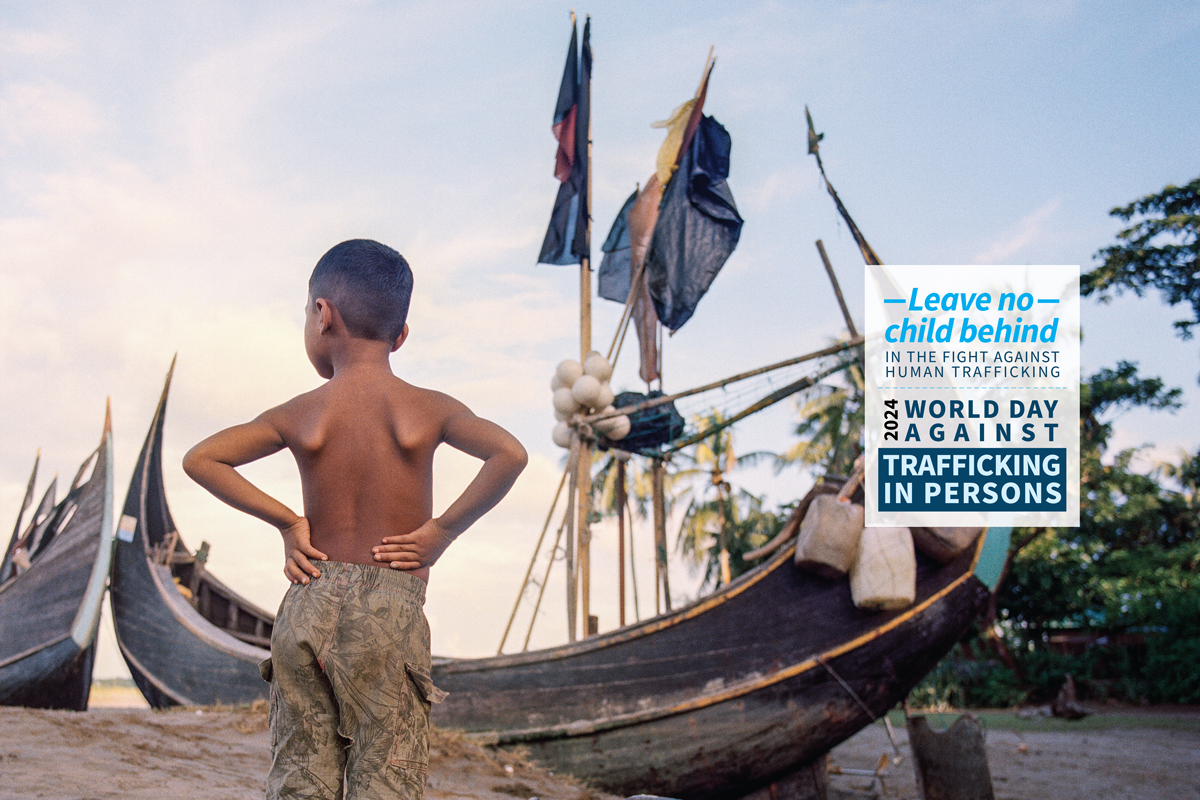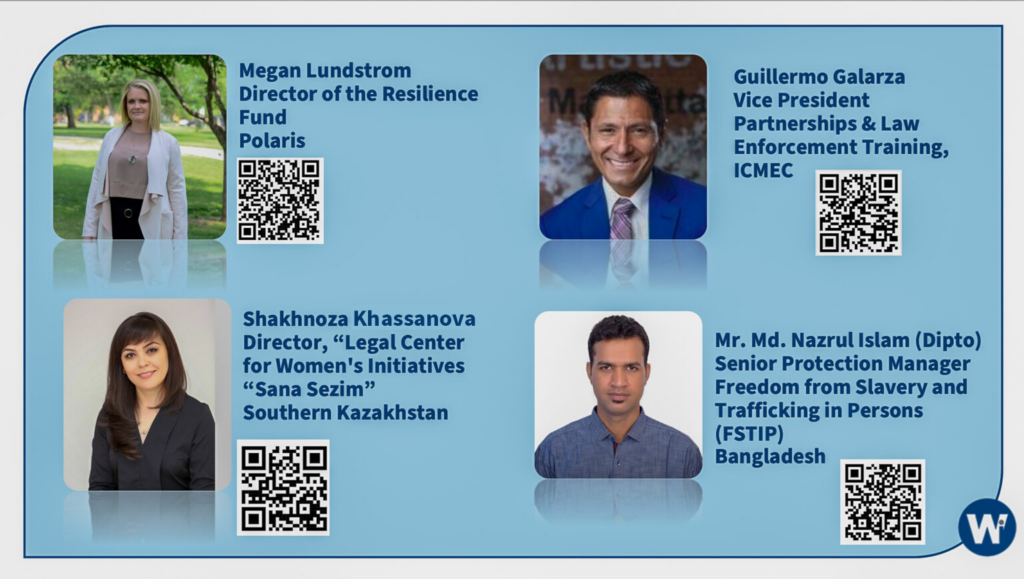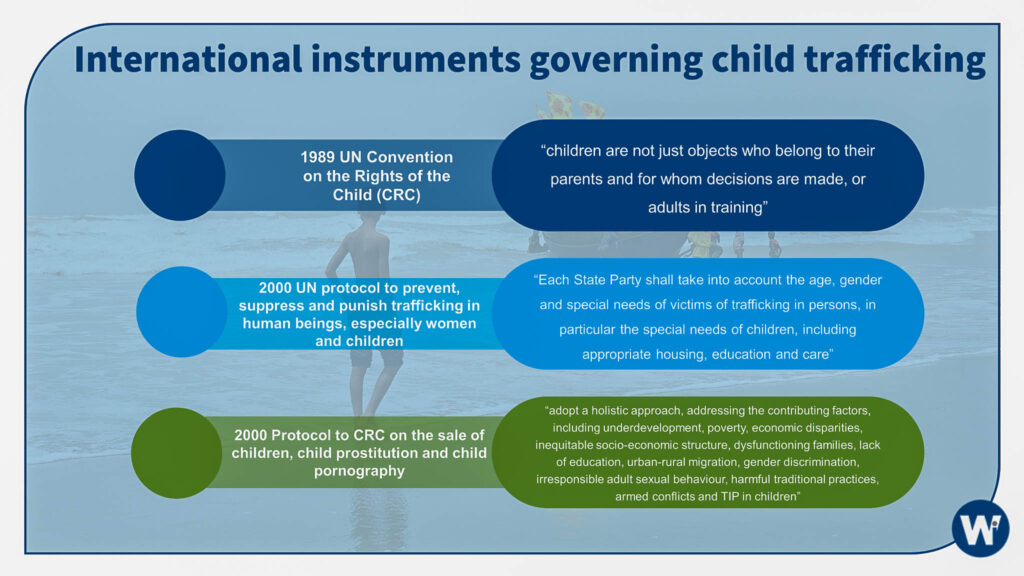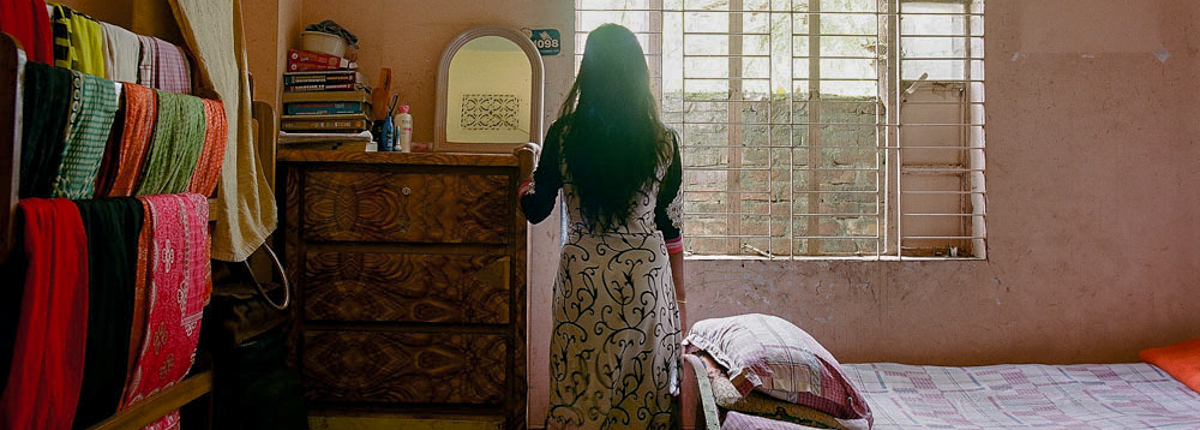
No Child Left Behind: A Winrock-led dialogue with global counter-trafficking leaders and survivors on child protection, partnerships and prevention
“Globally, one in three victims of human trafficking is a child, and the majority of these trafficked children are girls,” according to the United Nations. Additionally, the U.N. Office on Drugs and Crime states that children are twice as likely as adults to face violence during trafficking.
The devastating statistics are a sobering reminder of the urgency behind efforts to end child trafficking, and set the tone for an important 2024 World Day Against Trafficking in Persons event organized by Winrock International’s Counter Trafficking in Persons team. The theme for this year’s U.N. observance: “Leave No Child Behind in the Fight Against Human Trafficking.”
A well-attended Winrock webinar held on July 30th, 2024, shared information about successful, multifaceted approaches taken by nongovernmental organizations in collaboration with local partners and government to confront child trafficking directly through a combination of community-led and policy-based approaches.
Experts featured during the webinar included Guillermo Galarza, vice president for partnerships and training at the International Centre for Missing & Exploited Children; Shakhnoza Khassanova, director of the Legal Center for Women’s Initiatives Sana Sezim in Kazakhstan; Megan Lundstrom, director of The Resilience Fund at Polaris; and Nazrul “Dipto” Islam, senior protection manager with USAID’s Fight Slavery and Trafficking in Persons Activity (FSTIP) implemented by Winrock in Bangladesh.
Joyjit Deb Roy, Winrock’s chief global programs and development officer, kicked off the webinar with opening remarks, noting that over the past three decades Winrock has managed 35 different counter-trafficking projects around the world.
“At present, we implement 13 projects in 20 countries that follow the ‘4P’ approach of prevention, protection, prosecution and partnership,” Deb Roy said. “The work that Winrock, our panelists and all of you joining [are doing], shows the commitment to ending exploitation, supporting survivors from identification through reintegration and reducing the vulnerability of communities at risk of trafficking.
“None of us work alone,” he emphasized.

Olga DiPretoro, technical advisor with Winrock’s Human Rights, Education & Empowerment team, moderated the discussion with panelists as they shared specific approaches, tools, trends and recommendations to support child counter-trafficking and survivor recovery. DiPretoro introduced Anastassiya Khmelova, a survivor leader and member of a locally-led counter-trafficking advisory group collaborating with the Kazakhstan Actions Against Trafficking in Children (KATCH) project, funded by the U.S. Department of State and implemented by Winrock in Kazakhstan.
Khmelova shared recommendations for bolstering support for child CTIP survivors, including creating interagency working groups to better coordinate services for both children and their parents. The KATCH project is introducing and expanding awareness of child-sensitive, trauma-informed, comprehensive services, in collaboration with local partners. KATCH has coordinated with youth agencies, women’s centers and local partners to raise awareness about safe migration, the risks of trafficking, and survivor services. KATCH also promotes opportunities for access to education with the goal of keeping children in school and reducing their vulnerability to unsafe migration or trafficking.
Khmelova noted that a proliferation of fraudulent online platforms, combined with social and economic factors including family dysfunction and poverty, as well as conflict and climate-related reasons, exacerbate the situation for children. Children are also more susceptible to trafficking due to their lack of experience and “do not always recognize the complexity of the situation,” Khmelova said.
Another Winrock-implemented project, USAID’s FSTIP, focuses on child trafficking, exploitation and forcible marriage using the 4P approach in 25 Bangladeshi districts. Panelist Dipto Islam of FSTIP discussed the challenges faced by families in each district, including financial hardship, which contributes to vulnerability to trafficking.
“Based on the practical experience working on the grounds in Bangladesh, particularly during the COVID pandemic, we have seen how much child forced marriage and child forced labor increased,” Islam said. “This is the harsh reality.”
Megan Lundstrom of Polaris briefed webinar participants on The Resilience Fund, which protects survivors from re-exploitation with stabilizing cash-based assistance. Polaris promotes “voice, choice and agency” through resources including the National Human Trafficking Hotline, which connects victims and survivors of sex and labor trafficking with services to get help and stay safe. Over the past decade, the number of calls regarding child labor exploitation has remained consistent and makes up 3% of the total labor trafficking signals each year, Lundstrom said.
DiPretoro asked Guillermo Galarza of the International Centre for Missing & Exploited Children (ICMEC) how child trafficking criminal cases should be handled after they are reported to law enforcement. ICMEC has worked in over 20 countries in the past two decades to protect children from exploitation, in part by training law enforcement in the proper protocols for recognizing and addressing forms of child trafficking.

“There has to be a preventative and a protective element,” Galarza said. “On the preventative element, you have to have monitoring services, a dedicated hotline and statistics and data collection. You have to have services for victims … having safe places and shelters and safe houses is crucial to prevent revictimization. The victim-centric approach makes sure we have reunification for these victims as well.”
Proper identification of victims is critical to securing prosecution of the traffickers, especially in the case of children; parents must apply to the police with a statement to ensure the correct details and information are provided to start a criminal investigation, said Shakhnoza Khassanova, director of Sana Sezim, a legal center in Kazakhstan that focuses on women’s initiatives and child CTIP issues. Sana Sezim provides education to children to prevent trafficking, and partners with Winrock on the KATCH project to identify, refer and provide trauma-informed services to survivors. KATCH works actively with youth centers, colleges and schools to teach children how to recognize potential risks of trafficking and the skills to protect themselves and their peers.
Nina Etyemezian, associate vice president of Human Rights, Education & Empowerment at Winrock, ended the meeting by thanking the more than 100 participants from Africa, Asia, Europe and North America.
“Global representation of stakeholders speaks to the fact that children are trafficked in every country around the world,” Etyemezian said. “It is also an acknowledgment of the urgency with which we must continue to address child trafficking until all children are able to live lives free of exploitation.”
Related Projects

Kazakhstan Actions Against Trafficking in Children (KATCH)
As a transit and destination location for migrants from the Kyrgyz Republic, Tajikistan and Uzbekistan, Kazakhstan ─ Central Asia’s largest country ─ faces increased domestic and international migration, exacerbated by economic turmoil from the COVID-19 pandemic and Russia’s invasion of Ukraine. For example, thousands of undocumented Uzbekistani migrants transit into Kazakhstan each day via informal […]
